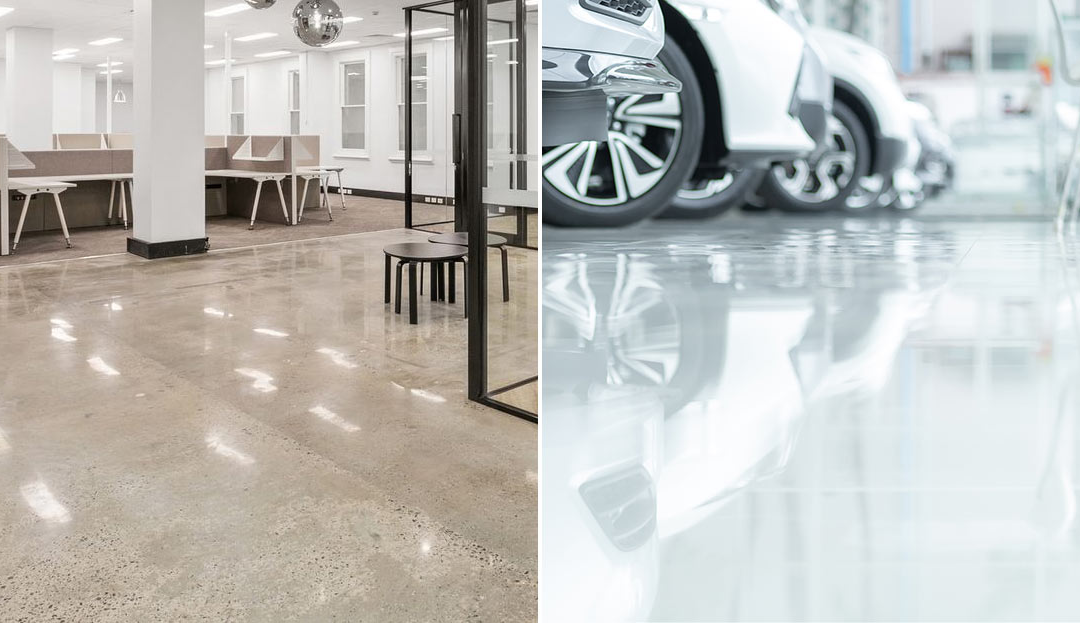Introduction:
When it comes to flooring options for commercial and industrial spaces, two popular choices are epoxy and concrete. Both have their advantages and disadvantages, and choosing the right one for your needs can be difficult. In this blog, we will discuss the differences between epoxy and concrete flooring and help you make an informed decision.
Part 1: What is Epoxy Flooring?
Epoxy flooring is a type of coating made from a mixture of resin and hardener. The resulting material is highly durable, resistant to stains and chemicals, and can be customized in a variety of colour and patterns. Epoxy flooring is commonly used in commercial and industrial settings, such as warehouses, hospitals, and food processing facilities.
Part 2: What is Concrete Flooring?
Concrete flooring is made from a mixture of cement, water, and aggregates. The resulting material is hard, durable, and long-lasting. Concrete flooring is commonly used in industrial settings, such as factories and workshops.
Part 3: Comparing Epoxy and Concrete Flooring
Durability:
Both epoxy and concrete flooring are highly durable, but epoxy flooring has a slight edge. Epoxy flooring is resistant to scratches, stains, and chemicals, making it an excellent choice for high-traffic areas. Concrete flooring is also durable, but it can crack or chip over time.
Maintenance:
Epoxy flooring requires minimal maintenance, making it an attractive option for busy commercial and industrial spaces. It can be easily cleaned with a damp mop or floor cleaner. Concrete flooring requires more maintenance, including regular cleaning and sealing.
Aesthetics:
Epoxy flooring can be customized in a variety of colours and patterns, making it an attractive option for businesses that want to create a unique look. Concrete flooring is generally plain and unadorned, but it can be stained or polished for a more polished look.
Installation:
Epoxy flooring is a more complex process than installing concrete flooring. It requires the application of multiple layers of coating, which must be allowed to cure between each layer. Concrete flooring is simpler to install but can take longer to cure.
Cost:
Epoxy flooring is generally more expensive than concrete flooring due to the cost of materials and labour. However, it offers a longer life span and lower maintenance costs over time, making it a worthwhile investment.
Part 4: Choosing the Right Flooring
When choosing between epoxy and concrete flooring, consider your specific needs and budget. If you are looking for a durable, low-maintenance flooring option that can be customized in a variety of colours and patterns, epoxy flooring may be the best choice. If you are looking for a simpler, more affordable option, concrete flooring may be the way to go.
Conclusion:
Epoxy and concrete flooring are both excellent choices for commercial and industrial spaces. Epoxy flooring offers superior durability and customization options, while concrete flooring is a more affordable and straightforward option. Consider your needs and budget when choosing the right flooring for your business, and consult with a professional to ensure the best results.
Contact us for more information – Jemkon or Call us – +91 8956740753

